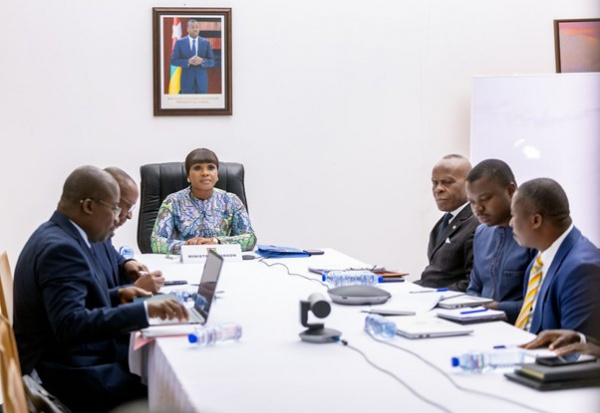Starting January 1, 2026, Equatorial Guinea will take the helm of the Council of Ministers of the Economic and Statistical Observatory of Sub-Saharan Africa (AFRISTAT). This significant leadership role will last until December 2027, marking a new chapter for the organization. Equatorial Guinea will succeed Togo, which has held the presidency since January 2024 and will complete its term next December.
The confirmation of Equatorial Guinea’s election took place during the 32nd ordinary session of the Council of Ministers. This session was conducted via videoconference, reflecting the adaptability of member states in today’s digital world. The meeting was chaired by Sandra Ablamba Johnson, Minister and Secretary-General of the Presidency of the Council, representing Togo.
During the session, the primary focus was on strengthening statistical systems across member states. Reliable data is essential for effective development policies. Leaders discussed various strategies to enhance these systems, recognizing that robust statistics underpin sound decision-making. This emphasis on data will allow member states to better manage their development policies and address pressing challenges.
The meeting also addressed the challenges facing AFRISTAT. As an intergovernmental organization, AFRISTAT plays a crucial role in promoting statistical cooperation among its members. By enhancing collaboration, the organization aims to improve the overall quality of statistics in the region. This improvement is vital for informed policy-making and effective governance.
Equatorial Guinea’s upcoming presidency presents an opportunity for the country to showcase its leadership skills. By taking on this role, Equatorial Guinea can influence the direction of statistical development in Sub-Saharan Africa. The country’s experience and commitment to data-driven decision-making will be valuable assets.
Moreover, the transition from Togo to Equatorial Guinea symbolizes continuity in leadership while also embracing new perspectives. Togo’s presidency has laid the groundwork for enhancing statistical capabilities among member states. Equatorial Guinea can build on this foundation, further strengthening the network of statistical collaboration.
The challenges discussed during the meeting are not insignificant. Many member states face issues related to data collection, quality, and dissemination. By addressing these challenges collectively, AFRISTAT can empower its members to overcome obstacles and achieve their development goals.
As Equatorial Guinea prepares for its presidency, the focus will remain on fostering partnerships. Collaboration between member states will be essential for sharing best practices and innovative approaches. This teamwork can lead to more effective statistical systems that benefit all nations involved.
In conclusion, Equatorial Guinea’s election as the new president of AFRISTAT is a significant milestone. Taking over from Togo, the country is poised to lead efforts in enhancing statistical systems in Sub-Saharan Africa. By focusing on data-driven decision-making and fostering collaboration, Equatorial Guinea can help its fellow member states navigate the challenges ahead. The future looks promising as AFRISTAT continues its mission to strengthen statistical capacities for sustainable development in the region. With Equatorial Guinea at the helm, member states can look forward to a period of innovation and growth.






